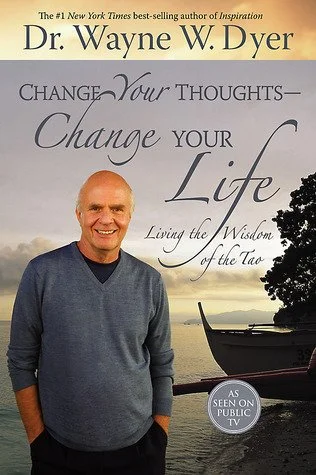Introduction to Taoism
Taoism (Daoism) is an ancient Chinese philosophy that teaches us to seek the way of nature and live in harmony with the universe. Through simplicity and inaction, the highest good will be achieved.
This sounds like a dream compared to the culture of America! We are trained that life is complicated and we must take action to succeed. There is so much effort and trying in modern life.
Much of my work with Qigong is based on Taoist principles. I am fortunate to witness the beautiful dance of gentleness and ease that naturally brings about greatness.
The Tao (Dao) is directly translated as "The Way". It is often described as the higher power of the universe, the life force, the origin of all things. It is also said that the Tao cannot be defined; as soon as you name or describe the Tao, it is no longer the Tao.
"The Tao never begins or ends, does nothing, and yet animates everything in the world of form and boundaries, which is called the world of the 10,000 things." (Dyer, 2007, xii)
The classic text of Taoism is called the Tao Te Ching (Dao De Jing). Written around 400 BC, this foundational work is credited to the ancient sage, Lao Tzu (Laozi). It includes 81 verses that resemble riddles and paradoxes, uniting the yin and yang to teach us how to live a peaceful and rewarding life.
"If action seems called for, he asks you to consider non-action. If you feel that grasping will help you acquire what you need or want, he councils you to let go and be patient." (Dyer, 2007, xii)
The Tao Te Ching has been translated thousands of times, each interpreting the Taoist philosophies in various ways.
I recommend for your consideration the version by Wayne Dyer,
Change your Thoughts - Change your Life, Living the Wisdom of the Tao
Dyer reviewed hundreds of translations of the Tao Te Ching and meditated on each verse to provide this in-depth commentary on the nature of our existence.
Dyer presents each of the 81 verses, translates the concepts into our modern lives, and recommends simple ways that we can live according to each verse in every-day life.
Below are some of my favorite verses from the Tao Te Ching. May you be inspired!
On Leadership, verse 17:
"The great leader speaks little. He never speaks carelessly. He works without self-interest and leaves no trace. When all is finished, the people say "We did it ourselves". " (Dyer, 2007, p. 76)
On Releasing judgements, verse 27:
"Be wise and help all beings impartially, abandoning none. Waste no opportunities. This is called following the light. What is a good man but a bad man's teacher? What is a bad man but a good man's job? If the teacher is not respected and the student is not cared for, confusion will arise, however clever one is. This is the great secret." (Dyer, 2007, p. 126)
On Self-mastery, verse 33:
"One who understands others has knowledge; one who understands himself has wisdom. Mastering others requires force; mastering the self needs strength. If you realize that you have enough, you are truly rich. " (Dyer, 2007, p. 160)
On Living, verse 63:
See simplicity in the complicated. Achieve greatness in little things. Take on difficulties while they are still small. The sage does not attempt anything very big, and thus achieves greatness. " (Dyer, 2007, p. 298)
On Health, verse 71:
"Only when we are sick of our sickness shall we cease to be sick. The sage is not sick but is sick of sickness; this is the secret of health." (Dyer, 2007, p. 334)
Through the reading of this book, I am reminded to release my ego, let go of judgements, and stop trying so hard. Flow through life like water: powerful yet easeful. Stand in the world like bamboo: with strength in flexibility. Live in harmony with nature and the universe.


